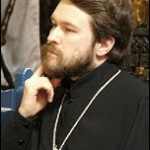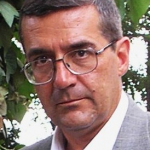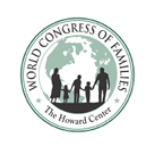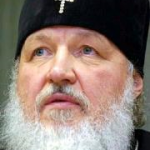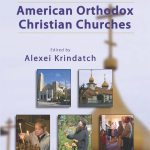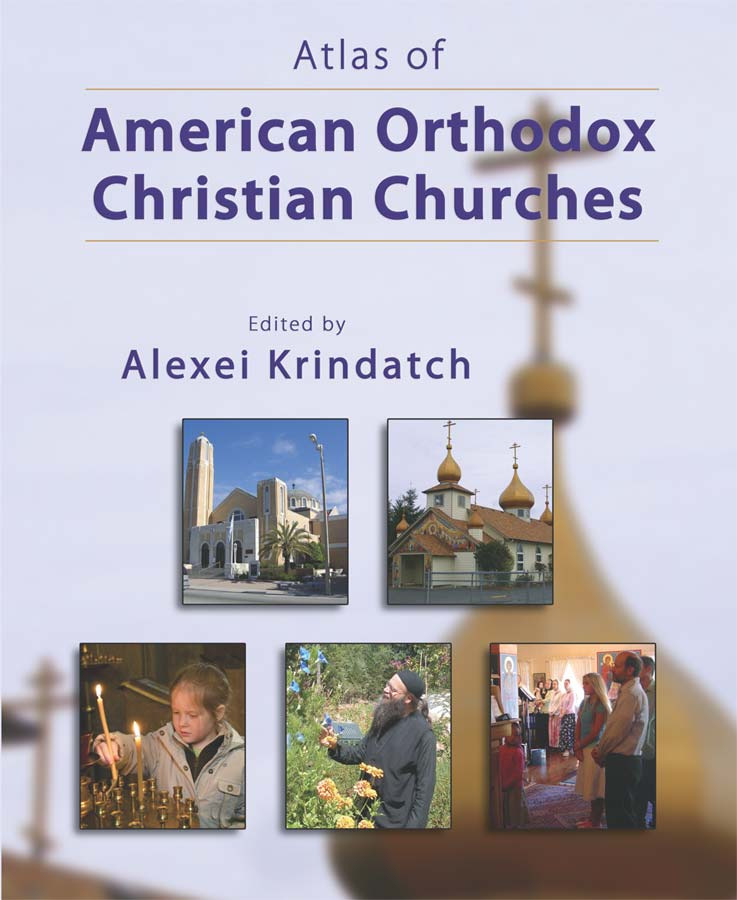Deprecated: trim(): Passing null to parameter #1 ($string) of type string is deprecated in
/home/aoiusa/public_html/wp-content/plugins/sexybookmarks/public.php on line
388
Deprecated: trim(): Passing null to parameter #1 ($string) of type string is deprecated in
/home/aoiusa/public_html/wp-content/plugins/sexybookmarks/public.php on line
394
Deprecated: trim(): Passing null to parameter #1 ($string) of type string is deprecated in
/home/aoiusa/public_html/wp-content/plugins/sexybookmarks/public.php on line
400
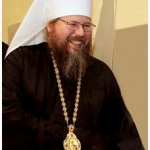 Wisdom from the experience of a true pastor. The piece is a bit long but once you start you will want to complete because it covers matters of the heart that all serious Christians struggle with.
Wisdom from the experience of a true pastor. The piece is a bit long but once you start you will want to complete because it covers matters of the heart that all serious Christians struggle with.
When I was in seminary I had the great blessing of becoming the spiritual son of a Greek bishop, Bishop Kallistos of Xelon. He ended his life as the bishop of Denver of the Greek Archdiocese. It was he who taught me the Jesus Prayer. The whole spiritual vision of Bishop Kallistos had three very simple points.
- Do not resent.
- Do not react.
- Keep inner stillness.
These three spiritual principles, or disciplines, are really a summation of the Philokalia, the collection of Orthodox Christian spiritual wisdom. And they are disciplines every single one of us can practice, no matter where we are in life – whether we’re in the monastery or in school; whether we’re housewives or retired; whether we’ve got a job or we’ve got little kids to run after. If we can hold on to and exercise these three principles, we will be able to go deeper and deeper in our spiritual life.
Do Not Resent
When we look at all the inner clutter that is in our lives, hearts and souls, what do we find? We find resentments. We find remembrance of wrongs. We find self-justifications. We find these in ourselves because of pride. It is pride that makes us hold on to our justifications for our continued anger against other people. And it is hurt pride, or vainglory, which feeds our envy and jealousy. Envy and jealousy lead to resentment.
Resentfulness leads to a host of problems. The more resentful we are of other people, the more depressed we become. And the more we are consumed with the desire to have what they have, which is avarice. Often we’ll then engage in the addictive use of the substance of the material world – whether it’s food or alcohol or drugs or sex or some other thing – to medicate ourselves into forgetfulness and to distract ourselves from our resentments.
One of the most valuable and important things that we can thus do is look at all of the resentments that we have. And one of the best ways of accomplishing this is to make a life confession. And not just once, before we’re baptized or chrismated. In the course of our spiritual life we may make several, in order to really dig in to our past and look at these resentments that we bear against other people. This will enable us to do the difficult work that it takes to overcome these resentments through forgiveness.
What does forgiveness mean? Forgiveness does not mean excusing or justifying the actions of somebody. For example, saying “Oh, he abused me but that’s O.K., that’s just his nature,” or “I deserved it.” No, if somebody abused you that was a sin against you.
But when we hold resentments, when we hold anger and bitterness within ourselves against those who have abused us in some way, we take their abuse and we continue it against ourselves. We have to stop that cycle. Most likely that person has long gone and long forgotten us, forgotten that we even existed. But maybe not. Maybe it was a parent or someone else close, which makes the resentment all the more bitter. But for the sake of our own soul and for the sake of our own peace, we need to forgive. We should not justify the action, but we should overlook the action and see that there’s a person there who is struggling with sin. We should see that the person we have resented, the person we need to forgive, is no different than we are, that they sin just like we do and we sin
just like they do.
Of course, it helps if the person whom we resent, the person who offended us or abused us in some way, asks forgiveness of us. But we can’t wait for this. And we can’t hold on to our resentments even after outwardly saying we’ve forgiven. Think of the Lord’s Prayer: “Forgive us our trespasses as we forgive those who trespass against us.” If we don’t forgive, we can’t even pray the Lord’s Prayer without condemning ourselves. It’s not that God condemns us. We condemn ourselves by refusing to forgive. We will never have peace if we don’t forgive, only resentment. It is one of the hardest things to do, and our culture does not understand it. It is to look at the person we need to forgive, and to love them – despite how they may have sinned against us. Their sin is their sin, and they
have to deal with it themselves. But we sin is in our reaction against their sin.
Do Not React
So this first spiritual principle – do not resent – leads to the second. We must learn to not react. This is just a corollary of “turn the other cheek.” When somebody says something hurtful, or somebody does something hurtful, what is it that’s being hurt? It’s our ego. Nobody can truly hurt us. They might cause some physical pain, or emotional pain. They might even kill our body. But nobody can hurt our true selves. We have to take responsibility for our own reactions. Then we can control our reactions.
There are a number of different levels to this principle. On the most blatant level, if someone hits you don’t hit them back. Turn the other cheek – that’s the Lord’s teaching. Now, this is hard enough. But there is a deeper level still. Because if somebody hits you, and you don’t hit them back – but you resent them, and you bear anger and hatred and bitterness against them, you’ve still lost. You have still sinned. You have still broken your relationship with God, because you bear that anger in your heart.
One of the things which is so difficult to come to terms with is the reality that when we bear anger and resentment and bitterness in our hearts, we erect barriers to God’s grace within ourselves. It’s not that God stops giving us His grace. It’s that we say, “No. I don’t want it.” What is His grace? It is His love, His mercy, His compassion, His activity in our lives. The holy Fathers tell us that each and every human person who has ever been born on this earth bears the image of God undistorted within themselves. In our Tradition there is no such thing as fallen nature. There are fallen persons, but not fallen nature.
The implication of this truth is that we have no excuses for our sins. We are responsible for our sins, for the choices we make. We are responsible for our actions, and our reactions. “The devil made me do it” is no excuse, because the devil has no more power over us than we give him. This is hard to accept, because it is really convenient to blame the devil. It is also really convenient to blame the other person, or our past. But, it is also a lie. Our choices are our own.
On an even deeper level, this spiritual principle – do not react – teaches us that we need to learn to not react to thoughts. One of the fundamental aspects of this is inner watchfulness. This might seem like a daunting task, considering how many thoughts we have. However, our watchfulness does not need to be focused on our thoughts. Our watchfulness needs to be focused on God. We need to maintain the conscious awareness of God’s presence.
If we can maintain the conscious awareness of His presence, our thoughts will have no power over us. We can, to paraphrase St. Benedict, dash our thoughts against the presence of God. This is a very ancient patristic teaching. We focus our attention on the remembrance of God. If we can do that, we will begin to control our troubling thoughts. Our reactions are about our thoughts. After all, if someone says something nasty to us, how are we reacting? We react first through our thinking, our thoughts.
Perhaps we’re habitually accustomed to just lashing out after taking offense with some kind of nasty response of our own. But keeping watch over our minds so that we maintain that living communion with God leaves no room for distracting thoughts. It leaves plenty of room if we decide we need to think something through intentionally in the presence of God. But as soon as we engage in something hateful, we close God out. And the converse is true – as long as we maintain our connection to God, we won’t be capable of engaging in something hateful. We won’t react.
Keep Inner Stillness
The second principle, the second essential foundation of our spiritual life – do not react – leads to the third. This third principle is the practice of inner stillness. The use of the Jesus Prayer is an extremely valuable tool for this. But the Jesus Prayer is a means, not an end. It is a means for entering into deeper and deeper conscious communion. It’s a means for us to acquire and maintain the awareness of the presence of God. The prayer developed within the tradition of hesychasm, in the desert and on the Holy Mountain.
But hesychasm is not only about the Jesus Prayer. It is about inner stillness and silence. Inner stillness is not merely emptiness. It is a focus on the awareness of the presence of God in the depths of our heart. One of the essential things we have to constantly remember is that God is not out there someplace. He’s not just in the box on the altar. It may be the dwelling place of His glory. But God is everywhere. And God dwells in the depths of our hearts. When we can come to that awareness of God dwelling in the depths of our hearts, and keep our attention focused in that core, thoughts vanish.
How do we do this? In order to enter in to deep stillness, we have to have a lot of our issues resolved. We have to have a lot of our anger and bitterness and resentments resolved. We have to forgive. If we don’t we’re not going to get into stillness, because the moment we try our inner turmoil is going to come vomiting out. This is good – painful, but good. Because when we try to enter into stillness and we begin to see the darkness that is lurking in our souls, we can then begin to deal with it. It distracts us from trying to be quiet, from trying to say the Jesus Prayer, but that’s just part of the process. And it takes time.
The Fathers talk about three levels of prayer. The first level is oral prayer, where we’re saying the prayer with our lips. We may use a prayer rope, saying “Lord Jesus Christ, have mercy on me,” or whatever form we use.
The next level is mental prayer, where we’re saying the prayer in our mind. Prayer of the mind – with the Jesus Prayer, with prayer book prayers, with liturgical prayers –keeps our minds focused and helps to integrate us, so that our lips and our mind are in the same place and doing the same thing.
We all know that we can be standing in church, or standing at prayer, and we may be mouthing the words with our lips but our mind is thinking about the grocery list. The second level of prayer overcomes this problem, but it is not the final level.
The final level of prayer is prayer of the heart, or spiritual prayer. It is here where we encounter God, in the depths of our soul. Here we open the eye of our attention, with the intention of being present to God who is present within us. This is the key and the core of the whole process of spiritual growth and transformation.
II. So how do we do this?
The Prayer of Stillness
The foundation of the spiritual process is learning to keep inner silence, the prayerof stillness. On the basis of this, we gain insight into how to stop resenting and to stop reacting. Then the process goes deeper and deeper, rooting out our deeply buried resentments and passions, memories of hurt and sin, so that the silence penetrates our whole being. Then we can begin to think clearly, and to attain towards purity of heart. Before beginning this process, it is important to have an established relationship with a spiritual guide, a father confessor or spiritual mother, to help you. Confession is a central part of the spiritual life, and things that come up in prayer, as well as resolving resentments and other issues, are part of that. It is also valuable to expose obsessive or sinful thoughts to your confessor. Simply exposing them deprives them of their power.
We always need to be accompanied on the journey within. Prayer is always a corporate action, leading to the transcendence of our individual isolation into a state of communion with God and the Other. The Jesus Prayer, “Lord Jesus Christ, Son of God, have mercy on me a sinner,” or some form of it, can be used as a vehicle to help us bring our attention into a prayerful state. The Jesus Prayer states the intention of our prayer, and we use it first verbally and then mentally until it goes beyond word and thought and becomes pure intention in deep
silence.
A prayer rope is very helpful to get started, not so much as to count prayers, but to keep the physical level of attention. We say one prayer on each knot, going round and round the rope, until our attention is focused in prayer. Then we can stop moving around the rope, and be still. The rope is not important in and of itself; one can pray just as well without it. It is an aid. Another aid is to follow your breath. What is important is not to get caught up in technique, but to pray.
The Prayer can be said standing, kneeling or sitting. If one is ill, lying down is acceptable; but it is hard to preserve focused attention while lying down. Prayer is not relaxation. It may relax you, but that is not the point. Posture is important to help keep your attention focused. If you’re sitting, it helps to keep your back straight and your shoulders back. One can also be prostrate on the ground, but it takes practice to let go of the physical distractions.
In beginning to pray, remember that God is “everywhere present and filling all things.” In prayer, you make yourself present to God. Open your mind and heart, your awareness of God, so that the sense of God’s Presence fills your consciousness. At first, we may not have a sense of God’s Presence. But the more disciplined our practice of prayer, the more that conscious awareness of God will fill our mind and heart. This is not an image, a thought “that” God is present (though this is a place to start), or a feeling or physical sensation. It is simply an awareness. This is the beginning of spiritual consciousness, where our awareness moves from the head to the heart, and from God as an object to a sense of being rapt in God’s Presence.
How to Enter the Prayer of Stillness
In short, sit down and collect yourself, and remember that God is present. Say the Trisagion Prayers if you wish. Breathe in slowly and deeply a couple of times, following your breath to the center of your chest. Begin to say the Jesus Prayer quietly, slowly, until you have a sense of God’s Presence. Then let the Jesus Prayer trail off, and go into silence. Thoughts will come, but simply let them go by. Don’t let them grab your attention. But if they do, gently dismiss them and bring your focus back to God’s Presence, perhaps using the Jesus Prayer to reestablish your intention to pray. Go deeper within yourself, below the thoughts, into the deeper stillness and awareness of Presence, and simply abide there.
The period of prayer should start out with a few minutes, and may entirely be occupied at first with the Jesus Prayer. Eventually, over a period of weeks or months, as you begin to master keeping your attention focused and dismissing thoughts, let it expand up to twenty or thirty minutes. Two periods of prayer, early in the morning and early in the evening are an excellent discipline.
Surrender and Detachment
The Prayer of Stillness is a process of inner surrender to the Presence and activity of God within yourself. Surrender your thoughts, feelings, emotions, ideas, agendas, plans, images and submit them to the Divine Presence. This is surrender of the ego, and the enkindling of our spiritual awareness. We stop our ego and its thoughts from distracting our attention, and permit God’s energy to work within to heal our souls. This is a kind of active and willful passivity, so that God becomes the active partner in prayer.
It becomes obvious that we cannot hold any kind of rancor or resentment, lust or passion, in our minds while trying to enter into silence. In fact, all our attachments to things, people, concepts and ideas have to be surrendered during silent prayer, and thus, they are brought into perspective. The more we connect with God in prayer, the more detached we become. It is a necessity if we are going to progress in prayer and in communion with God. All things that are obstacles to our living communion fall away, if we let them. The key, of course, is to surrender them and let them go.
The Emptying of the Subconscious
One critically important process that occurs is the emptying of the subconscious. After we have gotten to a point of stillness, over a period of days or weeks, we will be flooded by memories of past hurts, sins, resentments, images and sensations, and wrongs done to us. At first, we feel like we make progress in the prayer, and it is nice and peaceful.
Then, with the flood of memories, we feel like we are going backwards. This is progress! It is the beginning of the process of the purification of our soul. It is extremely unpleasant, at times, but the key is to not allow ourselves to react. These memories have been suppressed, and are now coming to awareness so that they can be dealt with. This purification is already the action of grace illumining your soul. During prayer, make a mental note of the memory or sin, and then take it to confession. Sometimes these memories and the feelings connected with them can be overwhelming. This is why accompaniment on the spiritual journey is so important.
You need someone who can encourage and reassure you, as well as help you resolve the issues that come to awareness, and forgive your sins. It is extremely distressing when suppressed memories of abuse and violent emotions come up. It can not only be confusing, but it can dominate our consciousness. We have to deal with these issues, as they come up, in order to be purified and open ourselves to God. This means working through forgiveness, accepting forgiveness, and forgiving ourselves and God.
The Imagination
Another thing that comes up is images, which play on our mind and imagination. There are two main levels here: first, the memory images we have seen that are connected with our passions; the second, images from our imagination. All the images we have ever seen are stored in our brain. They range from the face of our mother from our infancy, and other joyful images, to pornographic and violent images or those who have hurt us.
These images are especially powerful if they are attached to some kind of passionate act, of lust or anger. They can be a strong distraction from awareness of God. What is important is to remember that these are just thoughts, memories, and we can dismiss them. They have no power over us that we do not give them.
The task is to get beneath them, and let them go, and eventually take them to confession. The second level of images is what is produced by the imagination. We quiet down, and start to pray, and go into all sorts of imaginal realms, populated by angels, demons, and any and everything else. Many people take this as spiritual vision. But it is not. It is the realm of delusion, and there is nothing spiritual about it. This is especially dangerous if one has a past with hallucinogens and other psychotropic drugs.
The task is, first, to stay with the Jesus Prayer. Then, after much practice, go into silence and be absolutely resolute to allow no images, even of Jesus or the saints, into one’s mind during prayer. The imagination is still part of the mind, not the spirit (nous).
Even icons are not to be contemplated in an objective sense, bringing the image into the mind. As St John Chrysostom wrote, somewhere, “When you pray before your icons, light a candle and then close your eyes!” The icon is a sacrament of the Presence. Spiritual work is very serious business. If we do not work through the issues that arise in a healthy way, they can literally drive us crazy. It takes a deep commitment to the spiritual process, so as not to be distracted by the emptying of our subconscious, and led into despondency or despair. The task is to perservere, and let the process take its course. This means confessing our thoughts and resolving our resentments, and receiving absolution of our sins. Eventually, it works itself through, though it may take months or years to do so. As Metropolitan Anthony Bloom said, somewhere, when it gets too heavy, sit back and have a cup of tea! God is going to be there; it is we who have to work through our issues so we can be present to Him.
Dealing with Resentments
Resentment and reaction are deeply interrelated. Resentment is an impassioned reaction, based on a judgment of a person (or the self), where our passions are ignited. Resentment is a reaction which we hold within ourselves, and allow ourselves to nurture. It comes from and feeds off our passions, from judgment of others. Resentment is judgment and objectification of a person according to his actions, which have offended us.
The real key to resolving resentment is to realize that it is not the other person who is causing it, but that it is our own reaction. The actions of the other person may have precipitated the reaction, his words or deeds, his sin; but the reaction to those sins, words or deeds is purely our own.
We can only control what belongs to us; we cannot control another person. It is our decision to allow ourselves to be possessed by our passions and reactions, or to take control over our own lives. It is our decision to take responsibility for our own reactions, or to allow ourselves to be caught in the vicious cycle of blaming the other person, in resentment and self-righteousness. Blame and resentment lead nowhere, except to bitterness and unhappiness. They make us into helpless victims, which, in turn, robs us of the power to take responsibility for ourselves.
Resentment comes when we refuse to forgive someone, justifying ourselves by our self-righteous indignation at being hurt. Some of these hurts can be very deep: abuse,abandonment, betrayal, rejection. Sometimes they can be very petty. We keep turning the hurt over and over in our minds, and refuse let it go by justifying our anger. Then we feel justified in hating or despising the person who hurt us. Doing this, we continue to beat ourselves up with someone else’s sin, and compound the other person’s sin by our own resentfulness.
We blind ourselves to our own sin, focus only on the sin of the other, and in so doing, we lose all perspective. We have to put things into perspective, and realize that the other person’s actions are only part of the equation, and that our own reaction is entirely our own sin. To do this, we have to move towards forgiveness. To forgive does not mean to justify the other person’s sin. It does not mean that we absolve the other person—not hold them responsible for their sin. Rather, we acknowledge that they have sinned and that it hurt us. But what do we do with that hurt? If we resent, we turn it against ourselves. But if we forgive, we accept the person for who he is, not according to his actions; we drop our judgment of the person. We realize that he is a sinner just like me. If I am aware of my own sins, I can never judge anyone. We can begin to love him as we love ourselves, and excuse his falling short as we forgive ourselves. It helps when the person who hurt us asks for forgiveness, but it is not necessary. We must always forgive: not only because God forgave us; but also because we hurt ourselves by refusing to forgive.
Our resentments can also be extremely petty. Sometimes we resent because we cannot control or manipulate someone to behave according to our expectations. We become resentful of our own frustration, where the other really had nothing to do with it. All our expectations of other people are projections of our own self-centeredness. If we can let other people simply be who they are, and rejoice in that, then we will have tremendous peace!
We have to be watchful over ourselves, so that we do not allow ourselves to project our expectations on others, or allow resentment to grow within us. This kind of awareness, watchfulness, is nurtured by the practice of cutting off our thoughts and practicing inner stillness. By this, we practice cutting off our reactions, which all start with thoughts. We can come to see what is our own reaction, and what belongs to the other.
Eventually, we see that our judgment of the other is really about ourselves, our own actions, words, attitudes and temptations, which we see reflected in the other person. To face this means to face our own hypocrisy, and to change. If we judge and condemn someone for the same sins, thoughts, words and deeds that we have ourselves, then we are hypocrites. We must repent from our hypocrisy. This is real repentance: to recognize and acknowledge our own sin, and turn away from it towards God and towards our neighbor.
We have to see how our sins distract us from loving our neighbor, and from loving God. Our love of our brother is the criterion of our love of God. St John tells us, “How can we love God whom we have not seen, if we can’t love our neighbor whom we can? If you say that you love God and hate your brother, you are a liar”. If we love God, then we will forgive our neighbor, as God has also forgiven us. The conscious awareness of our own reactions and judgments, of our attachment to our passions of anger and our own will, is the first level of spiritual awareness and watchfulness. We have to move beyond self-centeredness (oblivious to others), to becoming self-aware, aware of our own inner processes through watching our thoughts and reactions.
Repentance and Confession
Awareness of our sins and hypocrisy, our short comings and falls, leads us to repentance and the transformation of our life. Repentance, conversion, the transformation of our mind and our life, is the core of the Christian life. Repentance does not mean to beat ourselves up for our sins, or to dwell in a state of guilt and morose self condemnation. Rather, it means to confront our sins, and reject and renounce them, and confess them, trying not to do them again. What this does is, that to the extent we renounce and confess our sins, they no longer generate thoughts, which accuse us or spur passionate reactions.
Sometimes we have to confess things several times, because we only repent of, or are even conscious of, aspects of the sin. Things that make us feel guilty, provoke our conscience, or that we know are acts of disobedience all should be confessed. We have to train our conscience, not by memorizing lists of sins, but by becoming aware of what breaks our relationship with God and other people. We need to be conscious of God’s presence, and realize what distracts us from it. These things are sins. Of course, we are experts at deluding ourselves, when we really want to do something, and we know that it is not blessable.
Confession is not only Christ’s first gift to the Church, the authority to forgive sins in His Name; but is one of the most important means of healing our souls. Sins are not sins because they are listed in a book somewhere. They are sins because they break our relationship with God, other people, and distort our true self. Sins are sins because they hurt us and other people. We need to heal that hurt, and revealing the act or thought or attitude takes away the shame that keeps it concealed, and prevents healing.
We need to confess the things that we are the most ashamed of, the secret sins, which we know are betrayals of our true self. If we don’t confess them, they fester and generate all sorts of despondency, depression and guilt, shame and despair. The result of that is that we identify ourselves with our sins. For example, same-sex attraction becomes gay identity. Failure in some area becomes a general self-identification with being a failure.
What is critically important is that we are not our sins, thoughts or actions. These things happen, we sin, have bad thoughts and do wicked and evil things. But we are not our thoughts or actions. Repentance means to stop and renounce not only the actions, but to renounce the identity that goes with it. Thoughts are going to come. But we can learn, through practicing inner stillness, to let our thoughts go. They will still be there, but we can learn to not react to them, and eventually, simply to ignore them.
The process of purifying our self is hard and painful, at first; but becomes the source of great joy. The more we confess, honestly and nakedly, the more we open ourselves to God’s grace, and the lighter we feel. Truly the angels in heaven (and the priest standing before you bearing witness to the confession) rejoice immensely when a person truly repents and confesses their sins, no matter how dark and heinous. There is no sin so grievous that it cannot be forgiven. NOTHING! The only sin not forgiven is thinking that God cannot forgive our sin. He forgives. We have to forgive our self, and accept His forgiveness.
Preparing for confession is an important process. It means to take stock of our life, and to recognize where we have fallen, and that we need to repent. The following should help to prepare for confession, but it is not a laundry list. Rather, it should help to spur our memory, so that we can bring things to consciousness that we have forgotten. It is more of an examination of conscience.
The Passions
- Gluttony,
- Lust
- Avarice
- Anger
- Envy
- Despondency
- Vainglory
- Pride
The Commandments
- Love the Lord your God with all your heart, with all your soul and with all your mind; and love your neighbor as yourself
Loving God
Do I love God?
Do I really believe in God, or just go through the motions?
Do I pray, and when I do, do I connect, or is it just mechanical?
Do I rush through prayers, Scripture readings, and spiritual literature?
Do I seek the will of God in all things?
Do I rebel against what I know to be God’s will, and the Christian life?
Do I try to be obedient, and constantly surrender my life to God?
Do I go to church, go to confession and communion regularly, keep the fasts?
Do I try to be conscious of God’s Presence, or not?
Do I try to sanctify my life? Or do I give in to temptation easily? Thoughtlessly?
Loving our Neighbor
How do I treat the people around me?
Do I allow myself to judge, criticize, gossip aboutor condemn my neighbor?
Do I put people down? Do I look for their faults?
Do I condescend and talk down to others?
Do I treat others with kindness, gentleness, patience? Or am I mean, rough and nasty?
Do I try to control others, manipulate others?
Do I regard others with love and compassion?
Do I bear anger or resentments against others? Hatred, bitterness, scorn?
Do I use and objectify others for my own pleasure or advantage? For sex, for profit, or for anything else which de-personalizes him/her?
Do I envy and bear jealousy towards my neighbor? Do I take pleasure in his misfortunes?
Do I act thoughtlessly, oblivious to the feelings or conscience of the other?
Do I lead myneighbor into temptation intentionally?
Do I mock him or make fun of him?
Do I honor the commitments I have made? Marriage vows? Monastic vows?
Do I honor my parents? Am I faithful in my relationships?
Do I have stability in my commitments?
Am I conscious of how my words and actions affect others?
Have I stolen anything, abused or hurt anyone?
Have I committed adultery?
Have I injured or killed someone?
Do I covet other people’s things? Do I lust after possessions or money? Does my life revolve around making money and buying things?
Loving Our Selves
How am I self-centered, egotistical, self-referenced?
Do I take care of myself, physically, emotionally, mentally, spiritually? Am I obsessed about my self, my image, my appearance, my desires and agenda?
Do I indulge in laziness? Do I get despondent, depressed, despairing?
Do I beat myself up, indulge in self-hatred or self-pity?
Do I injure myself? Do I have low self-esteem, or think myself worthless?
Do I blame other people for my reactions? Do I feel myself a victim?
Do I take responsibility for my own reactions and behaviors?
Do I engage in addictive behaviors, abusing alcohol, food, drugs, sex, pornography, masturbation? How do I try to console myself when I’m feeling down?
Do I have anger and resentment, rage, and other strong emotions and passions suppressed within me? Do I act out on them? How do they affect my behavior? Can I control them or do I abuse other people?
Am I conscious of how my words affect people?
How am I a hypocrite? Can I face my own hypocrisy? Am I lying to and deluding myself?
Do I have a realistic idea of myself? Am I honest with myself and others? What kind of façade do I put up?
Have I done things that I don’t want to or am too ashamed to admit? Abuse of others or animals, incest, homosexual acts, perverse actions? Have I abused drugs, sex or other things that I don’t want to acknowledge? Am I afraid that I am those things—an alcoholic, drug addict, gay, child abuser? Am I afraid to confess them?
Can I forgive myself for these things? What do I feel guilty about? Does guilt control my life?
Am I being faithful to myself, to God, to others? Does my life have integrity?

